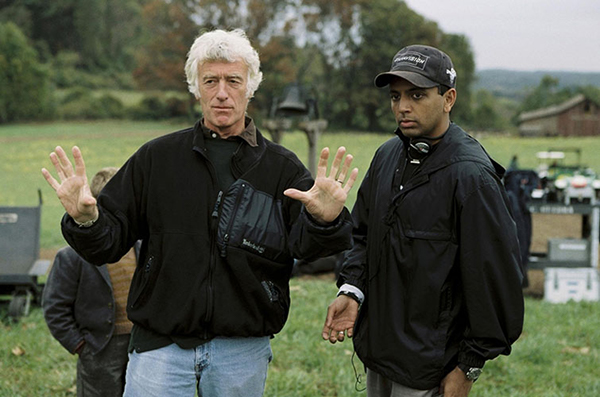
Composition
COMPOSITION
Episode 5
In this episode, we talk about the importance of composition and why composition matters.
It’s a tricky and complicated subject and there are no set answers. We talked about the difference of composition in still work and in motion. It’s one of those subjects that could continue on and on! Just defining composition is difficult!
You can find the podcast here. Click here for Apple Podcasts

Hello team Dickins. Thank you for the wonderful podcast, I had such a great time listening. I would like to thank you Mr. Dickins for the way you shot some of my favorite films.
I have a question related to what you said about that way in which a story could be overpowered by the the style of the cinematography. You also referred to the use of wide screen and an intimate story, and you could not see how it could work.
At that point came into my mind 2046, a Wong Kar Way film, shot by Christopher Doyle. It is a love story, intimate and wide screen, mostly interiors. I have seen the movie two or three times already, maybe the last time more than ten years ago, and I can’t remember the story, but I do remember the feel of it. It had rather the effect an impressionist painting would have. I was wondering if movies could function in this way too, in which the story is not that important, and the focus is more on the characters and what they feel. A modern way to look at things, I guess. We do remember many stories about our former lovers, but we also remember what we felt for them. I would say it works more like a memory of feelings, and not one of facts.
I gave this this example, because you said you never seen an intimate story that worked on wide screen, I would want to know what is your opinion on that. Is there a way in witch a film could work while it is relaying more on the cinematography, and the cinematography does overpower the story?
I liked a lot the cinematography of Blade Runner 2049, and I can’t tell if I was more into the story or the way film felt…
Thank you.
Radu Mocanu
I recommend asking this on the forums under the page for episode 5. I don’t know if replies here come up under the recent website posts.
Hello team Deakins. Thank you for the wonderful podcast, I had such a great time listening. I would like to thank you Mr. Deakins for the way you shot some of my favorite movies.
I have a question related to what you said about that way in which a story could be overpowered by the the style of the cinematography. You also referred to the use of wide screen and an intimate story, and you could not see how it could work.
At that point came into my mind 2046, a Wong Kar Way film, shot by Christopher Doyle. It is a love story, intimate and wide screen, mostly interiors. I have seen the movie two or three times already, maybe the last time more than ten years ago, and I can’t remember the story, but I do remember the feel of it. It had rather the effect an impressionist painting would have. I was wondering if movies could function in this way too, in which the story is not that important, and the focus is more on the characters and what they feel. A modern way to look at things, I guess. Maybe we do not remember so many stories about our former lovers, but we do remember what we felt for these persons. I would say it works more like a memory of feelings, and not one of facts.
I gave this this example, because you said you never saw an intimate story that worked on wide screen, I would want to know what is your opinion on that.
Is there a way in witch a film could work while it is relaying more on the cinematography, and the cinematography does overpower the story?
I liked a lot the cinematography of Blade Runner 2049, and I can’t tell if I was more into the story or the way film felt…
Thank you.